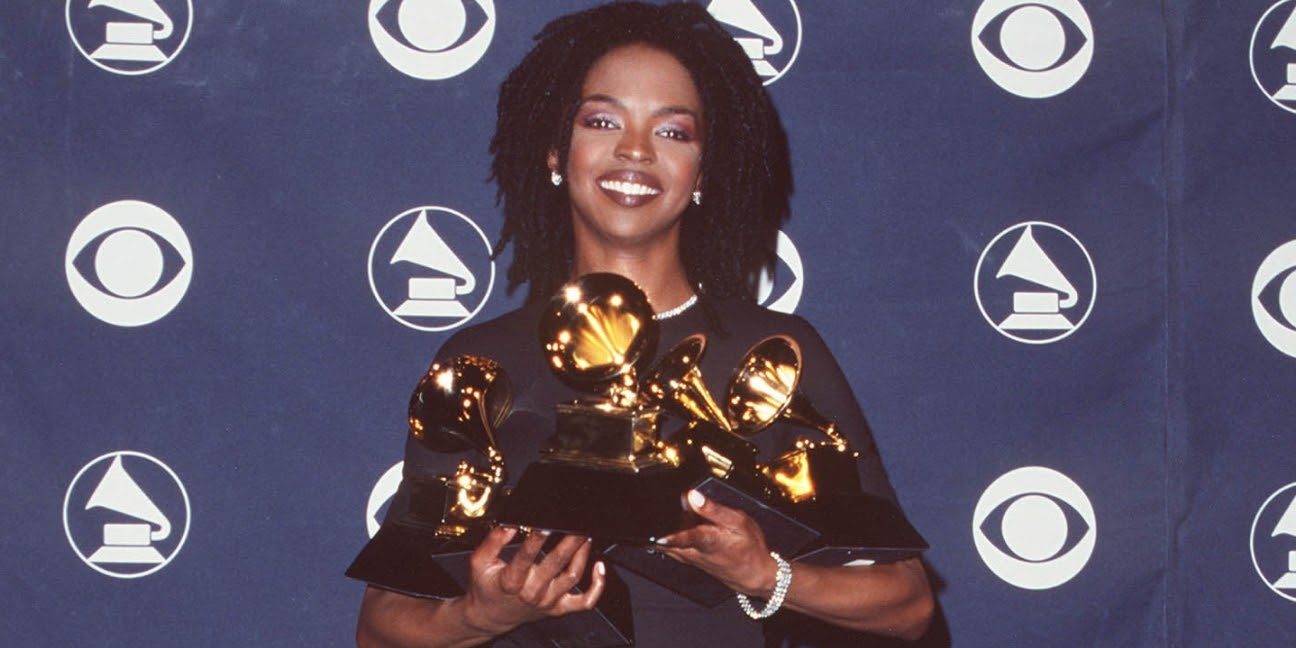Roll call inaugurates one of my all-time favorite albums. Paired with a modest chord progression, an unidentified instructor takes attendance while students file into the classroom. As they verbally acknowledge their presence, “Lauryn Hill” is the only name left responseless; the teacher repeats his probe before moving on. The music fades, and we begin the lesson.
The ensuing project—The Miseducation of Lauryn Hill—blends a soulful mixture of hip hop, reggae, and gospel into a divine articulation of what it means to love and be loved. Dropped at the sunset of Hill’s trailblazing career with The Fugees, her debut solo-album emerged from the ashes of the group’s controversial demise, the end of her relationship with Wyclef Jean, and her first pregnancy. Meditating on this amalgamation of formative experiences, Hill remarked, “I’d gone through a lot, a huge emotional and spiritual battle prior to the creation of that album.… Once I got the perspective—was able to look back at heartache and look back at pain and disappointment—it all was so clear.”
Though the 1998 release broke an endless string of commercial accolades—RIAA Diamond certification the most recent of this ever-growing catalog—the 21-year-old Hill didn’t set out for record-breaking; she wanted to learn, grow, and teach. Her choice to mortar the celestial mosaic by returning to episodes from the classroom contrast her life experience with lessons missed in her school day absence.
While her class wrestles with difficult questions such as, “how many people in here have ever been in love,” “do you think you’re too young to really love somebody,” and “do you think TV and music have something to do with why people are confused about love,” Hill’s living the highs and lows of a journey she transparently articulates throughout the LP. In her own words, “The album inspired many people from all walks of life because of its radical and intense will to live and express love in any and every capacity.… It required my vision, my passion, my faith, my will, my soul, my heart and my story.” Discussing the project in a 2020 interview with the Rolling Stones, Hill further reflects, “I’ve always been pretty critical of myself artistically, so of course there are things I hear that could have been done differently, but the love in the album—the passion—it’s intention is undeniable.”
It is. Hill reaches into the depths of her soul to express emotions so richly human that her grief, and pain, and joy, are ours. She channels what James Baldwin calls the “uses of the blues.” Acknowledging suffering as a “social fact” of the human experience, Baldwin posits that the blues “contains the toughness that manages to make this experience articulate.” To him, “There is something monstrous about never having been hurt, never been made to bleed, never having lost anything, never having gained anything.” Life is beautiful, and “the failure on our part to accept the reality of pain, of anguish, of ambiguity, of death has turned us into a very peculiar and sometimes monstrous people.”
Guiding us through the odyssey of her classroom absence, Hill teaches us to avoid the ghoulish transformation that Baldwin cautions against. She offers her experience for the audience’s self-discovery and does so so gracefully that it manifests as a subconscious byproduct of engaging her majesty.
Though I could endlessly revel in the elegance of Hill’s mission in Miseducation, I’ve always had a soft spot for the album’s fourth song: “To Zion”; as a momma’s boy, the track hits different. The song is a love letter to her first-born son—Zion David Marley—set against the unforgettable acoustic backdrop of Carlos Santana’s guitar strings. Beginning with a candid admission, “Unsure of what the balance held, I touched my belly overwhelmed by what I had been chosen to perform,” Hill chronicles her path to motherhood and the difficulty of this pilgrimage as a burgeoning artist. This journey is not only personal and emotional, it’s spiritual (hence the double entendre representing both her son’s name and the biblical mountain). As much as I return to divine imagery when discussing the album, “To Zion” is the only song that feels truly sacred—sacred like the love only a mother and child can share.
Throughout Miseducation, Hill teaches us to be human by exploring the most intimately protected chambers of our spirit. The album continues to break records because of this honest, raw reflection—it knows no temporal bounds. It’s the same reason that listening to the project while writing about it stifles productivity. Everything falls from your periphery as Ms. Lauryn invites you into her classroom, providing a vocabulary for expressing the inexpressible. Miseducation demands that you feel with it.

